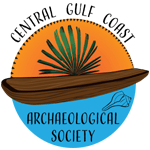Localized Histories of Calusa Ecology and Economy, Southwestern Florida, AD 1000 — 1500
Dr. Isabelle Holland-Lulewicz, Assistant Professor of Anthropology and Climate Science, Penn State University
Humans experience climate effects on scales that directly affect the availability of key subsistence resources, such as the location and abundance of fish populations. This is especially true for those populations that reside near and depend upon estuarine ecosystems where sea level change and/or changes in salinity can act as primary driving forces in the distribution and configuration of these ecosystems. The research presented here explores the local manifestations of global climate trends related to the Little Ice Age from AD 1000 — 1500 within two distinct estuarine systems in Florida, Charlotte Harbor/Pine Island Sound/San Carlos Bay and Estero Bay in Southwest Florida. It also combines this with an examination of the consequences of environmental change on economic strategies that in turn influence Indigenous sociopolitical and socioeconomic organization among the Calusa. This research utilizes high-resolution Bayesian chronological modeling, oxygen isotope geochemistry of incremental marine shell growth bands, and zooarchaeological analysis of vertebrate and invertebrate refuse at Mound Key (8LL2) and the Pineland Site Complex (8LL33, etc.), to examine local environmental conditions and evidence for deeply rooted ecological knowledge that supported complex socio-economic organization. Lastly, this presentation will examine evidence of a unique assemblage of burrfish remains recovered from archaeological deposits at Mound Key.
Dr. Isabelle Holland-Lulewicz is an Assistant Professor of Anthropology and Climate Science at Penn State University. She is the director for the Socio-Ecological Histories of Estuarine Landscapes (SHEL) Lab with her primary research program focusing on human-environment dynamics in the US Southeast by way of paleoenvironmental reconstruction via zooarchaeological analyses of vertebrates and invertebrates, stable isotope analysis of marine shell, and chronological modeling of anthropogenic exploitations of estuarine environments.
This monthly CGCAS Archaeology Lecture series is sponsored by the Alliance for Weedon Island Archaeological Research and Education (AWIARE).


